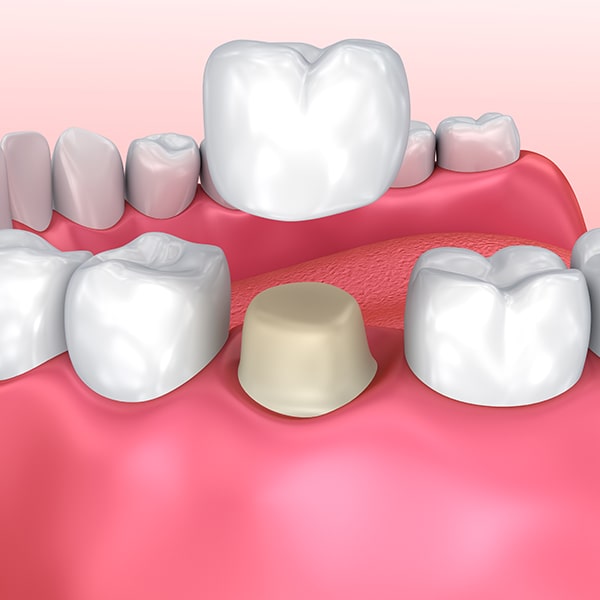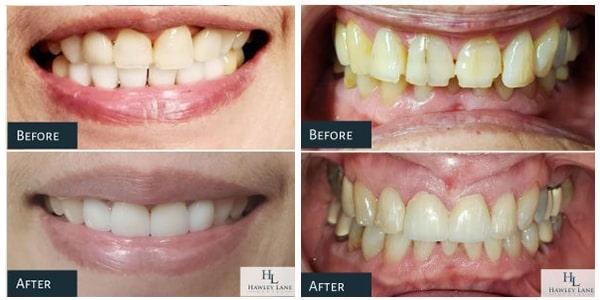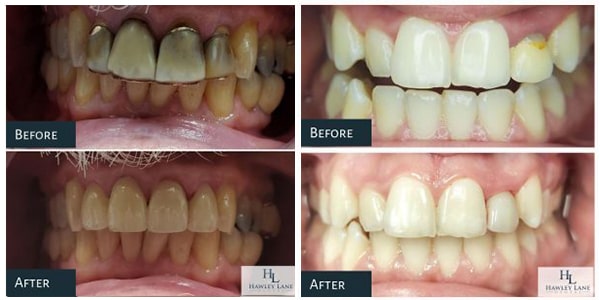BEST Dental Crowns & Tooth Caps
What Is a Dental Crown?
Dental crowns are custom-made caps that restore the functionality and appearance of damaged or weakened teeth. They are ideal for teeth that have undergone significant decay, fractures, or wear. Porcelain crowns, in particular, are designed to match the natural color and shape of your teeth, providing a seamless and aesthetically pleasing result. These durable restorations are used to enhance both the strength and appearance of your smile, offering long-lasting protection and a natural look. The process involves carefully fitting the crown to your tooth, ensuring a comfortable and precise result. Whether you’re dealing with a fractured tooth or seeking cosmetic improvement, dental crowns offer a reliable and effective solution.
How Much Do Crowns Cost in CT?
If you’re wondering how much dental crowns cost in Connecticut, you can expect to pay around $1200 per tooth for a porcelain crown. However, the crown fee will vary depending on several factors, such as the tooth’s location and the material used for the crown. In general, dental crowns can range between $1000 and $2000. For example, the cost of a porcelain crown will differ from that of a full metal crown, and a crown for a molar might cost more – or less – than a crown for a front tooth.
Everyone’s teeth are different, and the only way to definitively answer “How much do crowns cost in CT?” is to first schedule an exam so Dr. Gretzula can recommend the best course of treatment for you. In cases where a root canal is needed before a crown, it’s important to understand the root canal cost in CT as part of your overall treatment. When it is deemed that a crown is medically necessary for your oral health, your dental insurance should cover the costs of teeth cap prices. Contact our office today to learn more about the cost of dental crowns in Stratford, CT.

Depending on the amount of decay or damage, the tooth might not be salvageable, in which case a dental implant might be the better option for tooth replacement.
There are advantages to either treatment course; the cost of a dental implant … Click to open this link in the same window … is more expensive than a crown, but they typically last longer than crowns.
Before and After Results for Porcelain Dental Crowns
A porcelain dental crown is a great option for dentist tooth repair, especially when you need to fix a broken tooth and restore your smile. The results of a porcelain crown can be quite dramatic and beautiful, especially porcelain crowns for the front teeth. These before and after pictures of some of our porcelain crown patients help to show how effective dental crowns can be.

Precautions for Temporary Crowns
What you need to know.
Porcelain bridges may mimic natural tooth esthetics very nicely, because the Temporary dental crowns are made of acrylic or a similar material. They are placed to protect the prepared tooth and prevent the bite from changing while waiting for the permanent crown. Here are some guidelines to help keep your temporary crown in place:
Some people may experience tooth sensitivity, especially to temperature. Be sure to call your dentist should the temporary crown come off.
Dental Crowns FAQ
Dr. Gretzula shares her knowledge.
-
How Are Crowns Placed?
First visit — The dentist will usually administer a local anesthetic (Novocain) and shape the existing tooth that is to support the crown. A mold (impression) is made of the prepared tooth as well as the adjacent and opposing teeth. This ensures that the crown will fit the other teeth properly. A temporary crown will be placed over the prepared tooth until the permanent one is ready.
Second visit — The dentist may administer local anesthetic. The dentist removes the temporary crown and cleans the tooth. The fit and color are checked, and an X-ray … Click to open this link in the same window … may be taken to ensure the fit between the teeth and below the gum is correct. The crown is then cemented with durable, long-lasting cement. The new crown may feel strange at first, or the tooth may feel slightly sensitive. These feelings should subside within a week after the mouth adapts to the new crown.
-
How Long Does a Crown Last?
The life expectancy of a crown is 5-15 years, depending on several factors. Crowns may need to be replaced for a number of reasons, such as chipping the crown, wear on the crown or decay around the crown. Remember to care for the crown the way you’d care for the rest of the teeth. Crowned teeth are still prone to gum disease … Click to open this link in the same window … and decay and should be brushed and flossed daily.
-
Monday - 9:00am–5:00pm
-
Tuesday - 8:00am–5:00pm
-
Wednesday - 8:00am–5:00pm
-
Thursday - 8:00am–5:00pm
-
Friday - 8:00am–5:00pm





